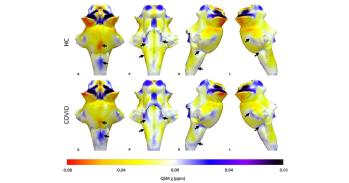
Cambridge Infectious Diseases will hold its first annual invited lecture on 31 May, 2011.
Cambridge Infectious Diseases will hold its first annual invited lecture on 31 May, 2011.
The consequences of counterfeit drugs are enormous – taking these for life-threatening diseases leads to treatment failure and death of people who would have survived with appropriate therapy.
Professor Sharon Peacock, Chair of Cambridge Infectious Diseases
Drugs, Deceptions & Disasters will provide the opportunity to hear three leading investigators speak on the global problem of counterfeit drugs and poor quality essential medicines.
Speaker Dr Paul Newton, from the Wellcome Trust-Mahosot Hospital-Oxford Tropical Medicine Research Collaboration in Laos said: “Investment in new essential medicines, research and changing health policy will be not be translated into better health if the medicines that patients actually take contain insufficient or incorrect ingredients. The history and epidemiology of these problems will be reviewed and potential interventions discussed.”
Professor Sharon Peacock, Chair of Cambridge Infectious Diseases adds: “The consequences of counterfeit drugs are enormous – taking these for life-threatening diseases leads to treatment failure and death of people who would have survived with appropriate therapy. All kinds of medicines have been counterfeited, including those for infectious diseases such as malaria and bacterial infections, as well as chronic diseases and even cancer therapies. The objective of this meeting is to raise awareness of the problem, and to consider how the people and resources available across the University of Cambridge could be co-ordinated to help tackle this growing problem.”
International awareness of the rise in counterfeit drug trade has increased over past 10 years, and attempts have been made determine the global prevalence of counterfeit drugs. In industrialised countries it is thought to be low, less than 1% of market value. However, in many developing countries of Africa, parts of Asia, and parts of Latin America, there are areas where more than 30% of the medicines on sale can be counterfeit, often with tragic consequences.
In the past two decades, toxic syrup containing diethylene glycol (antifreeze) instead of glycerine has figured in at least eight mass poisonings around the world with death estimates in the thousands. Influenza vaccines consisting only of water have been discovered; and over 100 deaths worldwide and many more allergic reactions have been associated with contaminated heparin. Of serious concern for global health, anti-malarials have become a favourite target of counterfeiters, and are believed to play a key role in the emergence of resistance to anti-malarials in South East Asia – once recent study found that a third of all anti-malarials sampled were fakes.
Other speakers include Aline Plançon of the Interpol Pharmaceutical Crime Unit who will explain how the international policy community are tackling this problem, and Prof. Lawrence Sherman from the Jerry Lee Centre of Experimental Criminology at the University of Cambridge who will discuss law enforcement in developing nations.
Drugs, Deceptions & Disasters – the challenge of poor quality essential medicines will be held from 5pm to 6.30pm on 31 May 2012 at the William Harvey Lecture Theatre, Clinical School, at Addenbrooke’s Hospital.
The link for registration can be found at:
This work is licensed under a Creative Commons Licence. If you use this content on your site please link back to this page.





